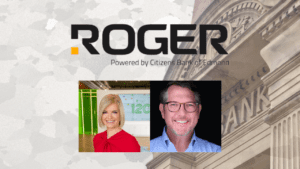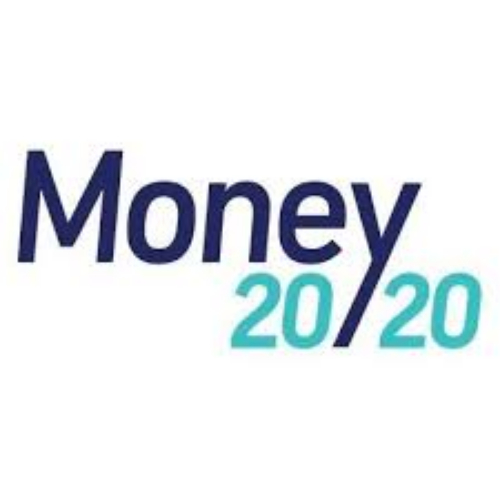Keith Daly, Director – Banking & Fintech Search at Travillian, spoke with Steven Duong, Director of Bank Partnerships at Figure Technologies, to discuss the impact of Defi, Blockchain, Crypto and Stablecoins and how these new technologies will transform banking and financial services in the coming years.
Keith Daly: What is Defi & Blockchain and how does it work?
Steven Duong: Blockchain is a type of distributed ledger, and in simplified terms, blockchain is simply a decentralized database with the following unique characteristics:
-
-
- Decentralized: no one entity controls the database
- Distributed: everyone has a copy of the database
- Immutable: records cannot be changed, only amended
-
Because blockchain is decentralized, it tends to be less efficient as a whole compared to a centralized database. Typically, several validators/miners and other resources (such as additional energy) need to be involved for each transaction on a blockchain, whereas a centralized database requires minimal resources to enter transactions. However, many believe that these inefficiencies are vastly outweighed by benefits derived from the three characteristics listed above (decentralized, distributed, and immutable).
Defi, short for decentralized finance, is pretty much what the name is…a form of finance that is decentralized where technology removes third-party intermediaries using dApps (decentralized applications) on the blockchain so that borrowers, lenders, and traders can face off directly in a transaction. The benefits to DeFi are that it’s more efficient (faster and cheaper) than traditional forms of finance. That being said, banks offer an expertise in underwriting that would be very difficult for DeFi participants and programs to match currently, and therefore, much of the DeFi activity has been largely around trading crypto.
Keith Daly: Can you explain how stablecoins are different from Crypto Currency, such as Bitcoin?
Steven Duong: Stablecoins are typically pegged to a currency, such as the U.S. dollar. A typical stablecoin issuer will receive fiat currency from a customer and invest the fiat into assets and earn some income off of the investment…essentially doing what traditional banks do. The customer receives the stablecoin, which allows the user to transact on certain exchanges that do not have easy on/off ramps for fiat. Stablecoins are also used for international remittance. Stablecoins have been under increasing scrutiny by financial regulators because stablecoin issuers do activities similar to traditional banks, but lack the level of regulation, prudential standards, and deposit insurance that traditional banks have. The concern is that during a crisis, there may be a run on the stablecoin issuers. Bitcoin is different in that there is no company issuing bitcoins. It is simply a program where bitcoin “miners” around the world are incentivized to “mine” bitcoin. The act of mining bitcoin facilitates a bitcoin transaction. Bitcoin was originally touted as a form of money, but due to the volatility and rapid rise in value, it is now more viewed as a form of “digital gold.” Aside from placing value in the asset itself (i.e., bitcoin), the bitcoin network can also be viewed as having value. The bitcoin network can facilitate international remittance as one party in one country purchases bitcoin in a local exchange and then transfer that bitcoin to another party in another country who then sells the bitcoin for their local currency.
Keith Daly: What is Figure and how are they working with financial institutions?
Steven Duong: Figure Technologies, Inc. is a fintech blockchain company. Figure originally built the Provenance blockchain, which now is an independent entity run by the Provenance Blockchain Foundation headed by the new CEO, Morgan McKenney. Figure uses the Provenance blockchain to originate and sell consumer loans and securitizes them as well, among other uses of the blockchain.
The USDF Consortium is a bank-owned, operated and governed network of insured banks to (1) coordinate the efforts of banks with respect to USDF and (2) promote the adoption and interoperability of USDF. USDF is a token that is minted exclusively by banks and represents a deposit at a USDF Consortium bank. The deposits will qualify for insurance up to applicable limits.
Banks are well-positioned to engage in this activity. They are experienced in managing risk, are highly regulated and subject to comprehensive supervision, are experts in payments, and are uniquely empowered with expertise in managing deposits.
USDF operates on a permissioned basis governed by the USDF smart contract where USDF can only be sent to customers who have an established relationship with a USDF Consortium bank and have been through standard deposit-account opening processes, including such bank’s BSA/AML/OFAC processes.
USDF facilitates low cost, real-time, 24x7x365 bilateral settlement of transactions on the Provenance Blockchain and provides for the programmability of money.
Keith Daly: How will blockchain technology change current banking infrastructure and services?
Steven Duong: So much of the backend financial infrastructure and processes today have not been upgraded for the last 40-50 years. Payments (P2P, B2C, B2B) will continue to see cost structures lowered and settlement times improve, as well as improved financial visibility and risk mitigation. But aside from payments, the second arch of this journey will revolve around the programmability of money and tight integration to business processes that we’ve never been able to achieve before. The impact will likely be widespread, in our view, from international remittance, to construction process and payments, to capital raises, to trading of digital assets, just to name a few. The value proposition is very high.
Keith Daly: Will NFT’s and Digital Assets affect banking such as loans and collateral?
Steven Duong: Yes! In fact, Figure will be offering crypto-backed mortgages soon. More info here: https://www.figure.com/mortgage/crypto-mortgage/
Keith Daly: How quickly will blockchain, digital assets, and crypto be crucial products or services for community banks to offer?
Steven Duong: I think blockchain technology is one of those rare once in a generational moments similar to how the internet changed our lives in all aspects. We’re still in very early innings…perhaps in the 1998/1999 timeframe of where the internet was. We expect most financial assets will be digitally native in the future, most of which will reside on the blockchain. Financial assets will range from digital tokens, to NFTs to stock certificates. Community banks will touch these different assets differently on a case-by-case basis due to regulatory requirements. We expect blockchain will give community banks new opportunities to serve their customers better at a more efficient cost structure with improved risk management.
Keith Daly: What are the first steps community banks and credit unions can take?
Steven Duong: The first step is to get a point person to be in charge of all things blockchain. Form a team, even if it is small. There will be a growing need for talent that understands all the ingenuities that DeFi has brought and the limitations of TradFi. So, get someone focused first. Second, have it on the agenda to go over and get involved even if your bank is not necessarily going to build anything today. It’s hard to ask the right questions from a technology, infrastructure, business use case, and regulatory perspective unless you’re involved. This is a marathon, not a sprint. New business propositions will appear and new ways of doing things will pop up. At Figure, we’re fortunate enough to be in the center of many of these areas from a technology, infrastructure, business use case, and regulatory perspective. You can sign up to the USDF Consortium on our How to Joinpage. Our latest USDF Overview Deck has more information as well.
Travillian’s Banking and FinTech Practice provides Search and Talent Advisory services to depository institutions across the country. Established in 1998, the firm has built a unique platform that touches every corner of the industry. To learn more, click here, or get in touch below!
|
Keith Daly, Principal -Banking & Fintech Search
(610) 908-5968 | kdaly@travilliangroup.com |












